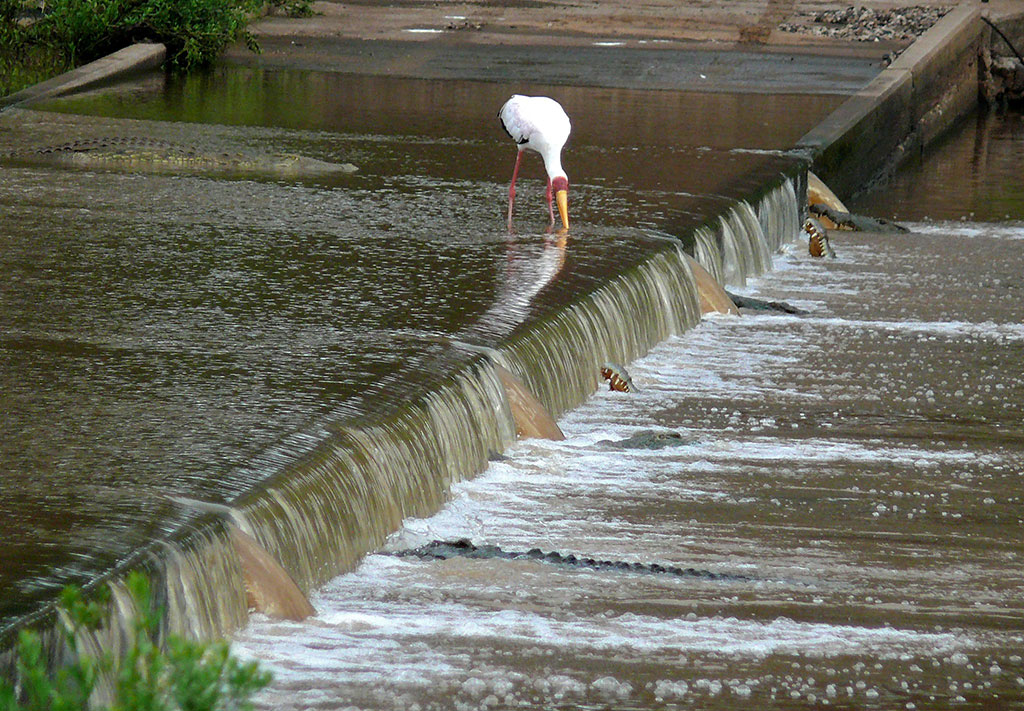The Kruger National Park (KNP) will be working with the South African National Defence Force (SANDF) to demolish the remaining part of Kanniedood dam.
The dam is situated about 9km south-east of Shingwedzi Camp off the S50. The demolition operation will take place over the period from Friday 29 November until Friday, 6 December 2019.
According to a statement from SANParks, ‘explosives will be used to demolish the structure; after which the rubble will be removed as part of the rehabilitation process undertaken by the Expanded Public Works, Biodiversity Social Program.’

S134 Causeway behind Shingwedzi Camp, Kruger. Image: Bernard du Pont
General manager of communications and marketing for the Kruger National Park, Isaac Phaahla said:
‘To ensure the safety of tourists, all roads in the areas will also be temporarily closed from 29 November to 6 December 2019. The affected roads are the S50 gravel road, this will be closed from S50 and S134 junction in Shingwedzi to the S50 and S143 junction in Mooiplaas from the 29 November to 6 December 2019’.
Additional safety measures will include clearing the ground around the structures that will be demolished to ensure the safety of people and animals. KNP rangers and SANDF firefighters will also be on stand-by to extinguish any wildfires that could break out.
‘An aerial flight will be dispatched to the area immediately prior to detonation to ensure no tourists, animals or staff members are near the target,’ said the statement.
In January 2013 the Kanniedood dam wall was breached by the floods, which bypassed the dam wall and created a new river channel, on the southern bank of the Shingwedzi River. The wall became redundant after the floods, ‘because it could no longer serve the purpose of retaining water’.
‘KNP has an artificial water provision policy which allows for the closing and removal of artificial water points. Artificial water holes where water did not previously occur naturally have led to numerous ecological problems such as erosion and other environmental degradation (such as barriers to fish migration routes)’, explained Phaahla.
The park’s conservation management has been closing and demolishing certain artificial water holes to prevent further ecological problems.
‘To enhance tourist experience, alternative game viewing opportunities will be provided in the future at areas of naturally occurring surface water’, the statement said.
You may also like
Related Posts
China’s National Health Commission has published a list of controversial coronavirus treatments that have animal...
read more
Warmer sea temperatures in the summer months, especially in February, were recorded and are believed...
read more
The latest report indexing the world's happiest countries has highlighted the important role of...
read more